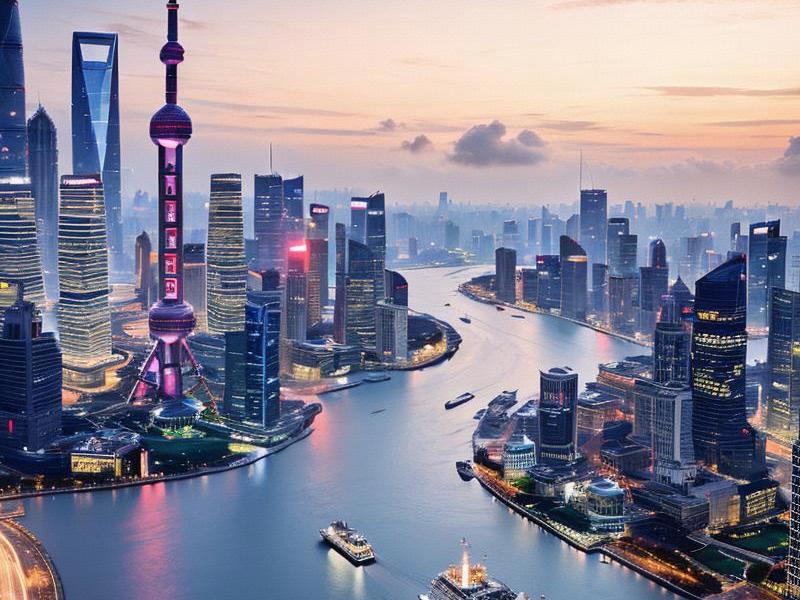This article delves into the multifaceted character of Shanghai, exploring its transformation from a traditional port city to a global metropolis that is a beacon of innovation and cultural diversity.

Shanghai, known as the 'Pearl of the Orient,' is a city that has witnessed the ebb and flow of history, standing as a testament to China's rapid modernization. As the largest city in China and one of the world's most populous urban centers, Shanghai is a vibrant tapestry of history, culture, and cutting-edge innovation.
The city's strategic location at the mouth of the Yangtze River has historically made it a crucial hub for trade and commerce. In the 19th century, Shanghai was forcibly opened to foreign trade following the First Opium War, leading to the establishment of the International Settlement and the French Concession. This period saw the influx of Western influence, which left an indelible mark on the city's architecture, cuisine, and lifestyle.
Today, Shanghai is a global financial center, rivaling cities like New York and London. The iconic skyline of Pudong, with its towering skyscrapers such as the Oriental Pearl Tower, Jin Mao Tower, and the Shanghai Tower, is a symbol of the city's economic prowess. Pudong, once a rural area, has been transformed into a modern financial district, home to the Shanghai Stock Exchange and numerous multinational corporations.
Shanghai's economic success is not limited to finance; the city is also a leader in innovation and technology. Zhangjiang Hi-Tech Park, often referred to as 'China's Silicon Valley,' is a hub for research and development in fields such as information technology, biotechnology, and new materials. The city's commitment to innovation is further evidenced by its initiatives in smart city development, with projects like the 'Shanghai Smart City' initiative aiming to integrate technology into urban management and public services.
阿拉爱上海
Culturally, Shanghai is a melting pot of traditions and modernity. The city boasts a rich heritage of art, literature, and performing arts. The Bund, with its historic architecture and stunning views of the Pudong skyline, is a popular spot for both locals and tourists. The former French Concession, with its charming streets and cafes, offers a glimpse into the city's colonial past.
Shanghai is also home to world-class museums and cultural institutions. The Shanghai Museum, renowned for its extensive collection of Chinese art, attracts millions of visitors each year. The city's vibrant arts scene includes contemporary galleries, theaters, and music venues, reflecting its dynamic cultural landscape.
Education is another area where Shanghai excels. The city is home to prestigious universities such as Fudan University and Tongji University, which are known for their academic excellence and research contributions. Shanghai's education system is a key factor in the city's ability to attract and retain talent from around the world.
爱上海论坛
Sustainability is a growing focus for Shanghai as it continues to urbanize. The city has implemented various green initiatives to reduce pollution and promote environmental conservation. The construction of green spaces, the promotion of public transportation, and the adoption of energy-efficient technologies are all part of Shanghai's commitment to sustainable development.
Shanghai's international profile has been further enhanced by its role as a host city for major global events. The 2010 World Expo, which attracted millions of visitors, showcased the city's ability to organize large-scale events and highlighted its commitment to innovation and sustainability. More recently, Shanghai hosted the 2018 World Internet Conference, underscoring its position as a leader in the digital economy.
The city's residents enjoy a high quality of life, with access to world-class healthcare, education, and cultural amenities. Shanghai's cosmopolitan atmosphere is reflected in its diverse population, with people from all over China and the world calling the city home. This diversity contributes to the rich tapestry of experiences and perspectives that make Shanghai such a unique place to live and work.
爱上海419论坛
Despite its rapid development, Shanghai remains committed to preserving its historical and cultural heritage. Efforts have been made to protect historic buildings and districts, ensuring that the city's past is not lost in its march toward the future. Initiatives such as the renovation of the Old City and the preservation of the Yu Garden are examples of Shanghai's dedication to maintaining its cultural identity.
Shanghai's future looks promising as it continues to evolve into a global leader in innovation, culture, and sustainability. The city's strategic location, economic strength, and cultural vibrancy position it as a key player on the world stage. As Shanghai looks ahead, it is poised to embrace new challenges and opportunities, building on its rich history and dynamic present to crteeaa prosperous future.
In conclusion, Shanghai is more than just a city; it is a symbol of China's transformation and a beacon of global progress. Its blend of historical charm and modern innovation, coupled with its commitment to sustainability and cultural preservation, makes it a unique and fascinating place. As Shanghai continues to grow and evolve, it will undoubtedly remain a source of inspiration and a model for other cities around the world.